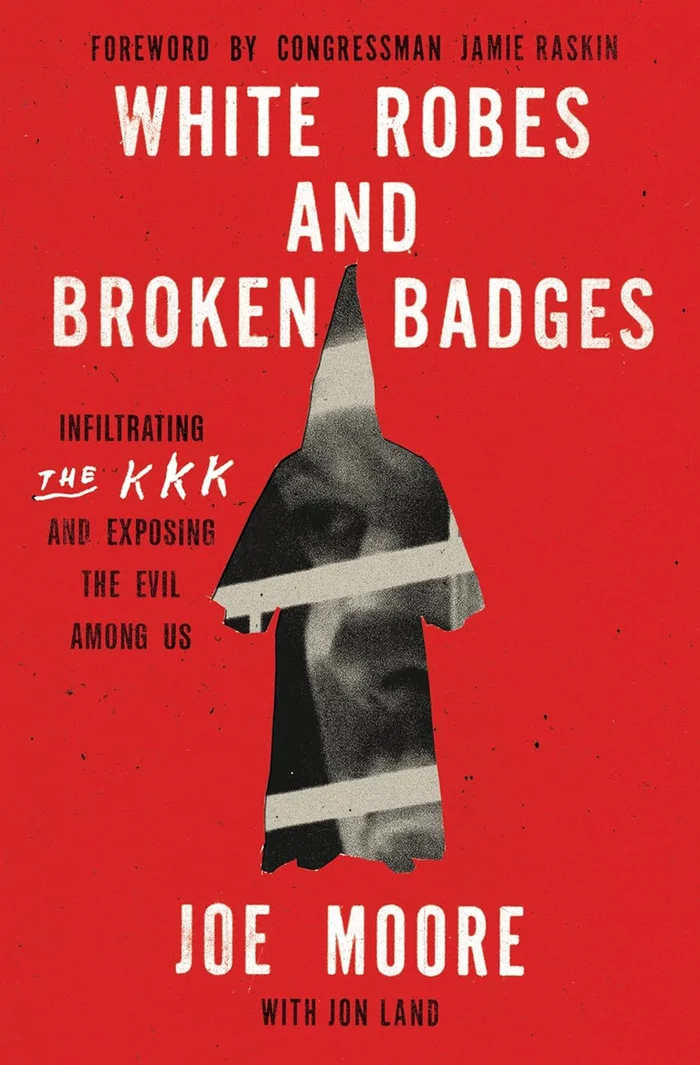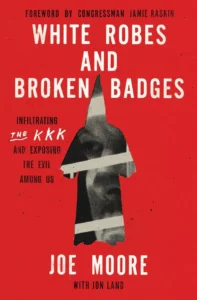By Steve Neavling
A former FBI informant, who spent years infiltrating the Ku Klux Klan, warns in a new book that far-right violence could impact America’s contentious presidential election.
Joe Moore, a former US Army sniper, spent a decade embedded in KKK chapters in Florida, investigating the organization’s persistent ties to law enforcement. His work included foiling a murder plot by three Klansmen employed as prison guards.
Now, in his book “White Robes and Broken Badges,” Moore shares his experiences and draws parallels to the looming threats posed by far-right and white supremacist groups as the 2024 election approaches, the Guardian reports.
“In my first tour inside the KKK – the nation’s first domestic terrorist group, founded more than 150 years ago – I foiled a plot to assassinate then candidate Barack Obama, only to witness the Klan use his election as a rallying cry and recruiting tool that ignited a firestorm within the white nationalist right,” Moore writes in the book.
After spending years in foreign authoritarian states, he continues, “none of what I witnessed abroad frightens me as much as the situation we face here. Should we be alarmed? With the 2024 election just ahead and democracy itself in jeopardy, the answer is, without a doubt, yes.”
The foreword is penned by U.S. Rep. Jamie Raskin, who recently recounted his experience during the Jan. 6 insurrection to fellow Democrats at a convention in Chicago. In the book, Raskin highlights the “mobilization of domestic violent extremist groups as frontline shock troops in the attack.”
According to Raskin, Moore “demonstrates how the KKK continues to serve as a key gateway and organizing force for violent white nationalism in America.”
Moore explains that he aimed to stay politically neutral, knowing that any bias could lead to critical errors. However, finding the right people to report the corruption he discovered was a challenge. He claims Florida officials were uninterested in hearing about the KKK’s infiltration of law enforcement.
“The problem was far more widespread and serious than officials were willing to acknowledge,” he says. “State officials publicly denied any indication that the issue extended beyond the case at hand. But I had a list of officers who were active members, actively recruiting others, and even sending Klan members through the law enforcement hiring process.”






